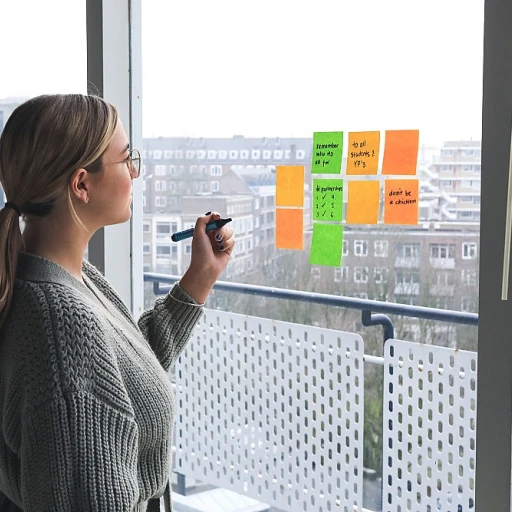
Understanding the PMP Process Mapping Game
Diving into the Intricacies of the PMP Process Mapping Game
The PMP Process Mapping Game, often utilized as a pivotal tool in project management, serves as a dynamic resource for individuals preparing for the PMP exam. Operating as an interactive learning module, this game aids in understanding the complex network of project management processes. It bridges knowledge areas, emphasizes the significance of process groups, and guides participants through the PMBOK Guide's intricacies. The game challenges participants with various scenarios that mirror real-world project management tasks, often drawing from exam prep materials like the Prepcast and other simulation tools. This setup provides a robust platform for practicing crucial concepts such as ITTOs (Inputs, Tools, Techniques, and Outputs) which are foundational to any PMP exam aspirant. By engaging with this educational activity, players can enhance their understanding of the 49 processes spread across the five process groups. These groups—Initiating, Planning, Executing, Monitoring & Controlling, and Closing—are central to project management, and mastering them is vital for any PMP certification aspirant. Participants frequently grapple with questions related to process mapping, as it plays a significant role in clarifying cohesive project plans and streamlining management processes. This game essentially serves as a free and interactive guide for filling knowledge gaps, reinforcing the application of each process and ensuring a comprehensive grasp of the project management body of knowledge. Incorporating the PMP Process Mapping Game into your study routine can significantly ease your journey toward PMP certification. For further insights on managing complex scenarios like these, you might find it useful to explore advice on navigating complex employee dynamics. This resource provides valuable lessons learned from various management challenges, which can parallel your experiences in mastering the PMP Mapping Game.The Role of Process Mapping in Project Management
The Impact of Process Mapping on Effective Project Management
Process mapping plays a pivotal role in the world of project management. It's not just a procedural formality—in fact, it becomes the backbone of organized project executions. The importance of understanding processes and how they interact within project frameworks cannot be overstated. Here’s why:- Organizational Structure: The process mapping helps in laying out a clear and succinct diagram or chart of how things will proceed, providing a structured approach to manage various tasks within the project life cycle.
- Streamlined Processes: Each step in the project aligns with the relevant process within the PMP scope. This assists teams in avoiding overlaps and ensures every team member understands their roles and responsibilities. Mappings like this are immensely beneficial when working through the PMP ITTO, allowing teams to efficiently navigate through knowledge areas.
- Effective Communication: Having a visual representation of project processes supports better communication among stakeholders, which is paramount when discussing complex management tasks. Questions and free discussions around the Process Mapping Game can bring clarity and in-depth understanding.
- Resource Optimization: With well-mapped processes, project managers can allocate resources with superb precision, enhancing efficiency across process groups and lowering the chances of resource wastage.
- Consistency and Uniformity: Especially important for those studying for the PMP certification, process mapping ensures that there is a consistent approach to managing projects. The PMBOK guide emphasizes a standard approach to processes which is critical for maintaining project consistency.
Benefits of Engaging in the PMP Process Mapping Game
Recognizing the Value of Participation in Process Mapping
The PMP Process Mapping Game offers numerous advantages to those preparing for the PMP exam or seeking to refine their project management skills. Engaging in this interactive and educational experience helps build a solid foundation in understanding both the theoretical and practical elements that underpin the Project Management Body of Knowledge (PMBOK Guide).
Participating in this game provides a dynamic platform for exam prep, allowing participants to explore the intricacies of the PMBOK Guide's knowledge areas and process groups in a structured manner. This structured approach is crucial for gaining clarity around how the various processes interlink within a project management context.
- Enhanced Retention: By presenting concepts in a game format, the process mapping game aids in the retention of key topics, making it easier for participants to recall important information during the exam.
- Practical Application: The game emphasizes the practical use of process mapping in real-world scenarios, aligning with the PMP certification's emphasis on practical knowledge and application.
- Strengthening Process Understanding: It nudges participants to delve deeper into the individual processes, understanding not just their roles but their significance within different project phases and how they map onto process groups.
The game further offers a critical perspective into management processes, which reinforces a holistic understanding of project management principles required for successful PMP certification.
Challenges Faced in the PMP Process Mapping Game
Overcoming Obstacles in the Process Mapping Journey
Navigating the PMP Process Mapping Game can be challenging, as it requires a deep understanding of project management processes and concepts. These are essential for anyone looking to pass the PMP exam and excel in project management. Some of the challenges you might face include:- Complexity of Knowledge Areas: Process mapping requires a comprehensive grasp of the knowledge areas outlined in the PMBOK Guide. These areas include everything from scope management to stakeholder engagement, making the mapping process quite intricate.
- Integration with Process Groups: Understanding how each process fits into the designated process groups can be difficult. Each group has specific characteristics and processes that need careful alignment with project objectives.
- Interpreting the ITTO Game: Input, Tools, Techniques, and Output (ITTO) form the backbone of process mapping. Grasping the connections between them is crucial but can be overwhelming, especially without extensive prep.
- Keeping Up with Updates: The PMBOK Guide and other resources like the PMI ACP and PMP ITTO undergo regular updates. Staying current with the latest changes is vital for process mapping accuracy.
- Effective Utilization of Free Resources: While free PMP and exam prep resources are available, discerning which materials offer genuine value is a common issue. Not all free content aligns with the meticulous standards of the PMP exam.
- Lessons Learned from Real-World Experience: Applying theoretical knowledge of process mapping to real-world project management scenarios can be daunting. Understanding practical applications is crucial for success.
Real-World Applications of Process Mapping
Real-World Impact of Process Mapping
In the realm of project management, process mapping is not just a theoretical exercise; it is a practical tool that can transform how projects are executed. By breaking down complex projects into manageable processes, teams can achieve greater clarity and efficiency. This is particularly relevant for those preparing for the PMP exam, as understanding the nuances of process mapping can be pivotal for success.
Process mapping serves as a visual guide that helps project managers and their teams understand the intricate details of a project. It aligns with the PMBOK Guide's emphasis on knowledge areas and process groups, offering a comprehensive view of how various processes interconnect. This is crucial when tackling the ITTO game, a component of the PMP certification that examines the inputs, tools, techniques, and outputs of different processes.
Moreover, real-world applications of process mapping extend beyond exam prep. In practice, it aids in identifying bottlenecks, streamlining workflows, and improving communication among team members. This is where tools like the exam simulator and free PMP resources can offer valuable insights, enhancing one’s understanding of process groups and management processes.
For those involved in complex projects, process mapping provides a clear chart that delineates the steps needed to achieve project goals. This is particularly beneficial for those seeking to understand the PMI ACP certification and other project management methodologies. By engaging with process mapping, project managers can develop a robust framework that guides decision-making and fosters a collaborative environment.
Ultimately, the ability to map processes effectively is a skill that will serve project managers well, not only in passing the PMP exam but also in leading successful projects. The knowledge gained through process mapping is a powerful tool in the arsenal of any management professional, providing a structured approach to navigating the complexities of project execution.
Tips for Mastering the PMP Process Mapping Game
Steps to Enhance Your Proficiency in the Process Mapping Game
Engaging in the PMP Process Mapping Game can be an excellent way to refine your knowledge of project management processes and enhance your chances of success in the PMP exam. Here are some tips to help you master this valuable tool:- Deep Dive into PMBOK Guide: The Project Management Body of Knowledge (PMBOK) Guide is an essential resource for understanding process groups and knowledge areas. Familiarize yourself thoroughly with this guide, as it will serve as a foundation for your process mapping skills.
- Leverage Exam Simulators: Utilize free PMP exam simulators or tools like the PrepCast to simulate the process mapping game environment. These simulators prepare you for the type of questions you might face and reinforce your understanding of the process groups.
- Utilize Mapping Charts: Visual aids like process mapping charts can help you internalize the sequence and interactions between different processes. These charts act as quick reference tools during your exam prep.
- Engage in Interactive Games: Participating in mapping games or the ITTO game, often found in online forums, can provide a hands-on approach to grasping the practical aspects of PMP process mapping. These games make the learning process engaging and memorable.
- Join Study Groups: Study groups, whether online or in person, offer an opportunity to discuss and clarify complex process mapping queries. Engaging with peers exposes you to diverse perspectives and strategies.
- Reflect on Lessons Learned: Document your experiences and challenges encountered during the game. Reviewing your lessons learned will highlight areas that require further study or clarification, ultimately aiding your project management certification journey.













